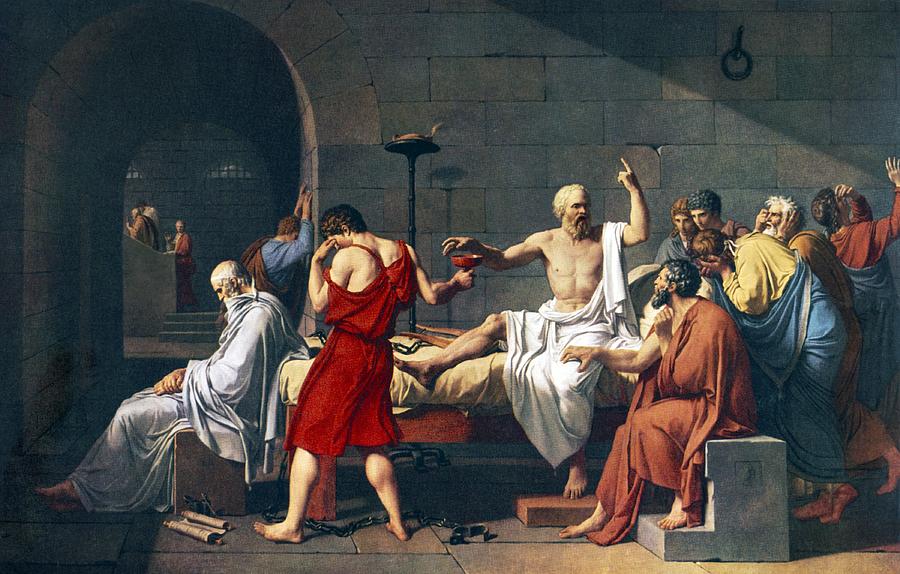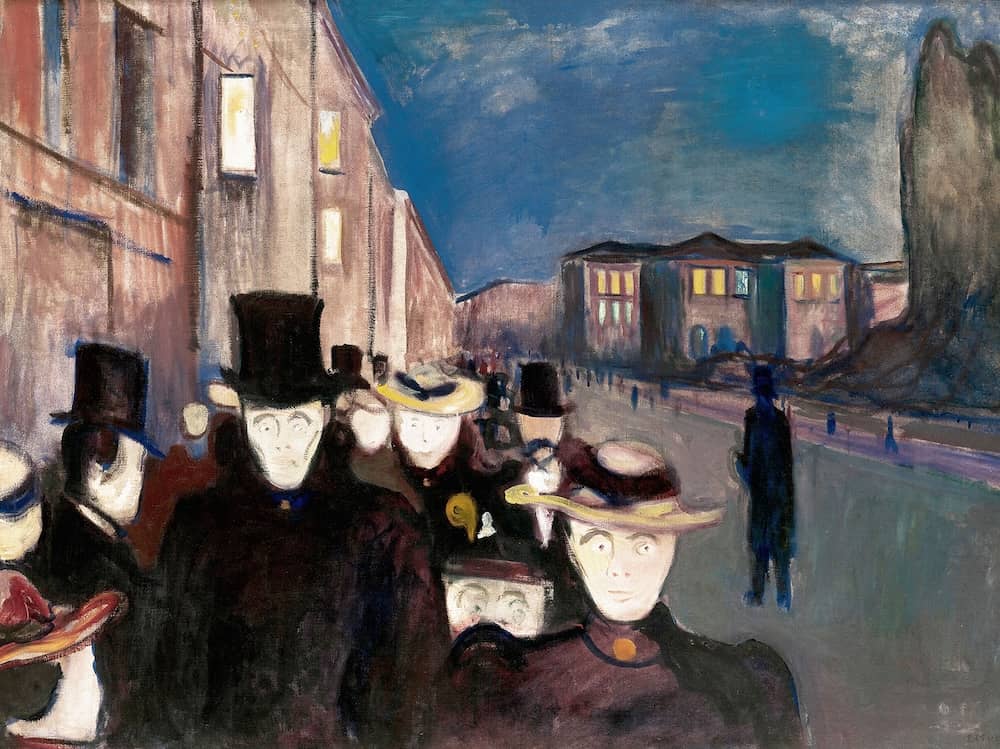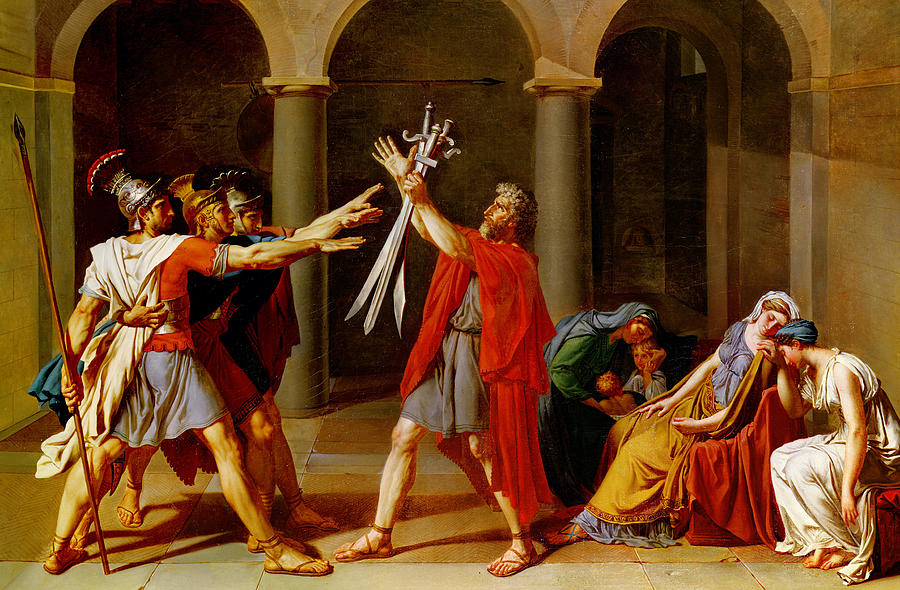Sulla was Rome's deadliest general.
He almost had young Julius Caesar executed.
But thousands loved Sulla, too.
9 keys to Sulla's effectiveness, that can make you just as deadly:

He almost had young Julius Caesar executed.
But thousands loved Sulla, too.
9 keys to Sulla's effectiveness, that can make you just as deadly:

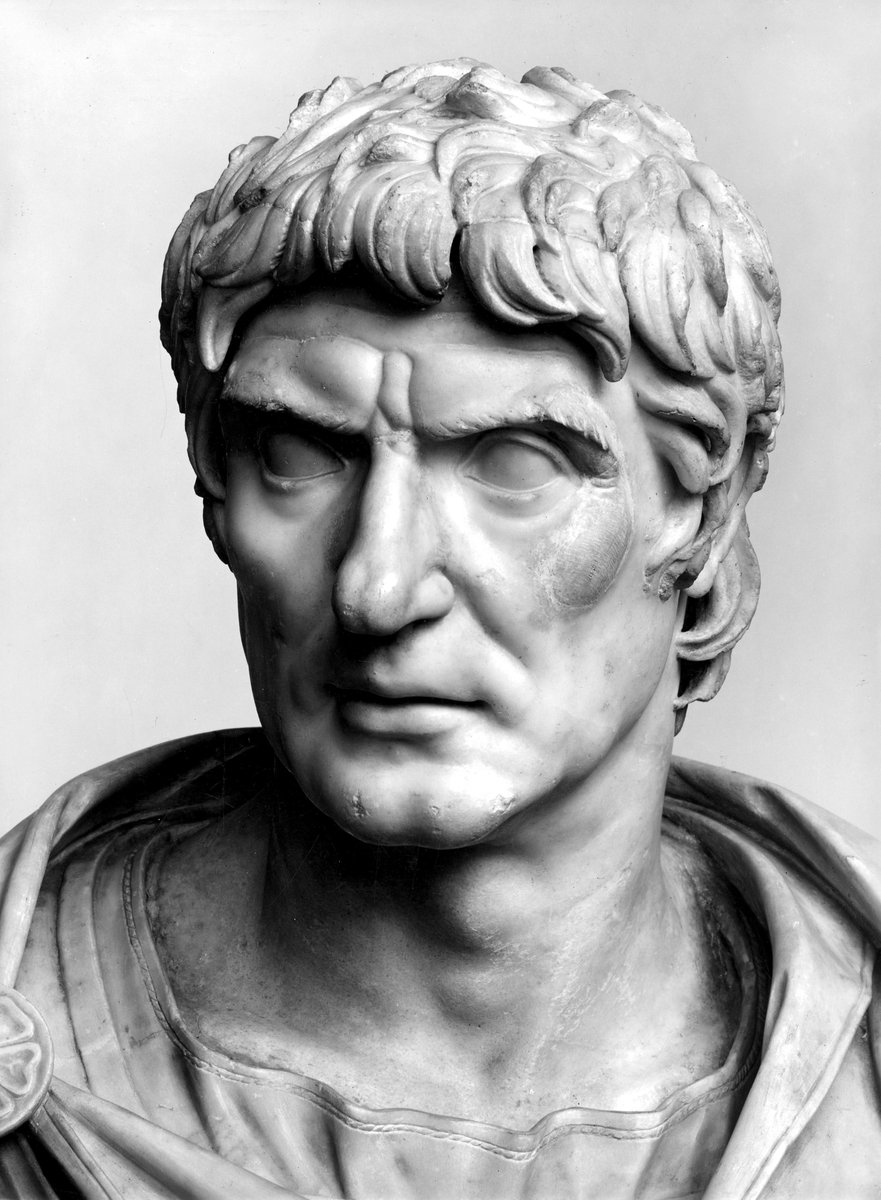
Brief bio:
Born in 138 B.C. into an obscure branch of a noble Roman clan,
Sulla rose from humble beginnings to be Praetor, Consul (2x), Dictator.
He is most famous for winning the First Roman Civil War
Then slaughtering his defeated foes to punish them (w/ "Proscriptions").
Born in 138 B.C. into an obscure branch of a noble Roman clan,
Sulla rose from humble beginnings to be Praetor, Consul (2x), Dictator.
He is most famous for winning the First Roman Civil War
Then slaughtering his defeated foes to punish them (w/ "Proscriptions").

Sulla launched the careers of other great Romans of the younger generation: Crassus, Pompey, Catiline, Lucullus.
His mortal enemy was the great Gaius Marius. Their feud caused the Civil War.
But his first post was as Quaestor in Numidia, under Marius. They got along well!
His mortal enemy was the great Gaius Marius. Their feud caused the Civil War.
But his first post was as Quaestor in Numidia, under Marius. They got along well!

1) Storytelling
Before embarking on his public career, Sulla spent a lot of time around the Roman theater.
He wrote funny plays, and partied with actors.
He was training.
Winning a civil war - a psychological contest, above all - requires being the better storyteller.
Before embarking on his public career, Sulla spent a lot of time around the Roman theater.
He wrote funny plays, and partied with actors.
He was training.
Winning a civil war - a psychological contest, above all - requires being the better storyteller.
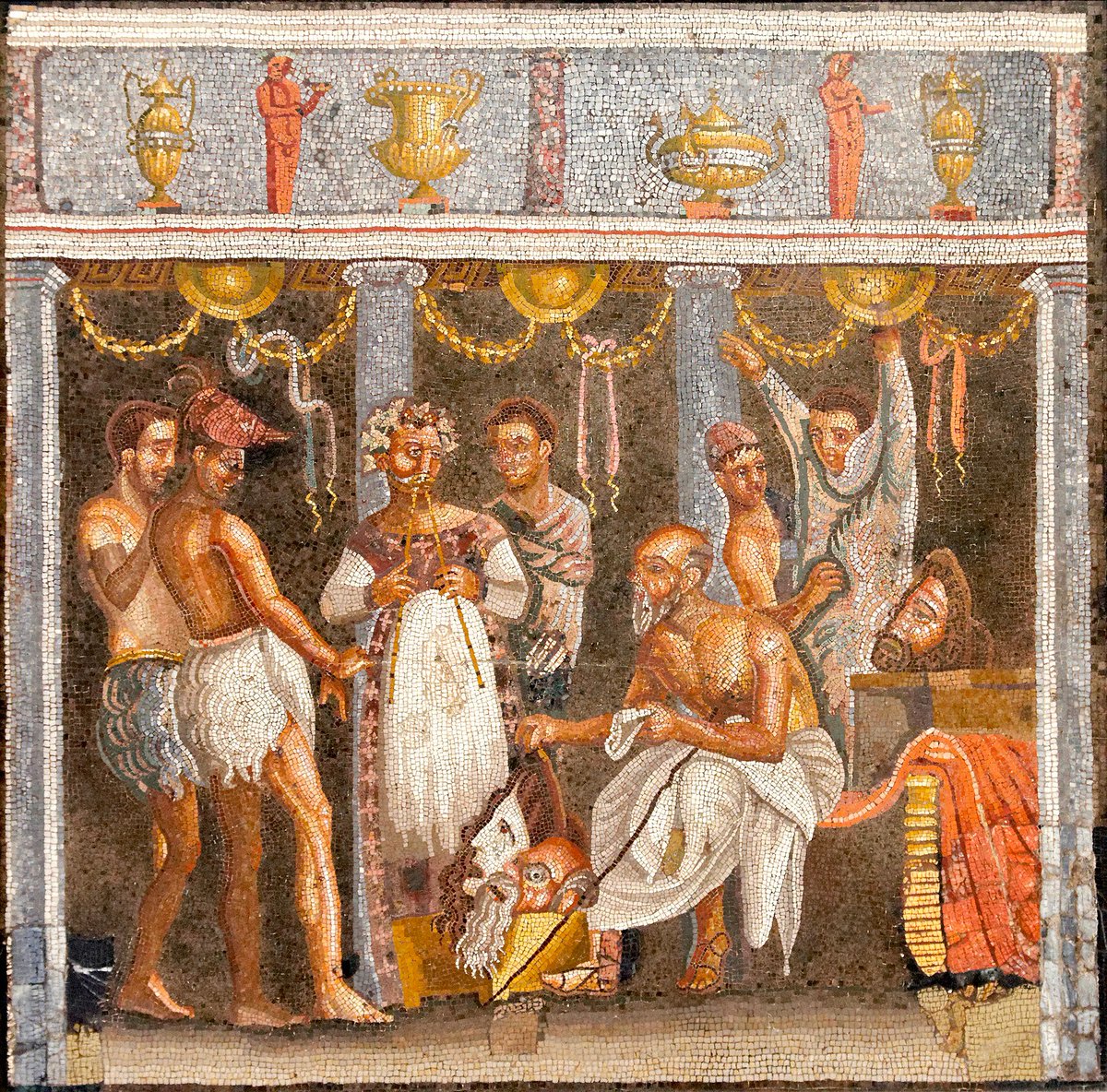
2) Charm
Good storytelling is an essential ingredient in charm.
So is humor.
Both are trainable, Sulla trained both.
One enemy, Papirius Carbo, said of him:
"Sulla is half lion, half fox. The fox half is more dangerous."
Good storytelling is an essential ingredient in charm.
So is humor.
Both are trainable, Sulla trained both.
One enemy, Papirius Carbo, said of him:
"Sulla is half lion, half fox. The fox half is more dangerous."
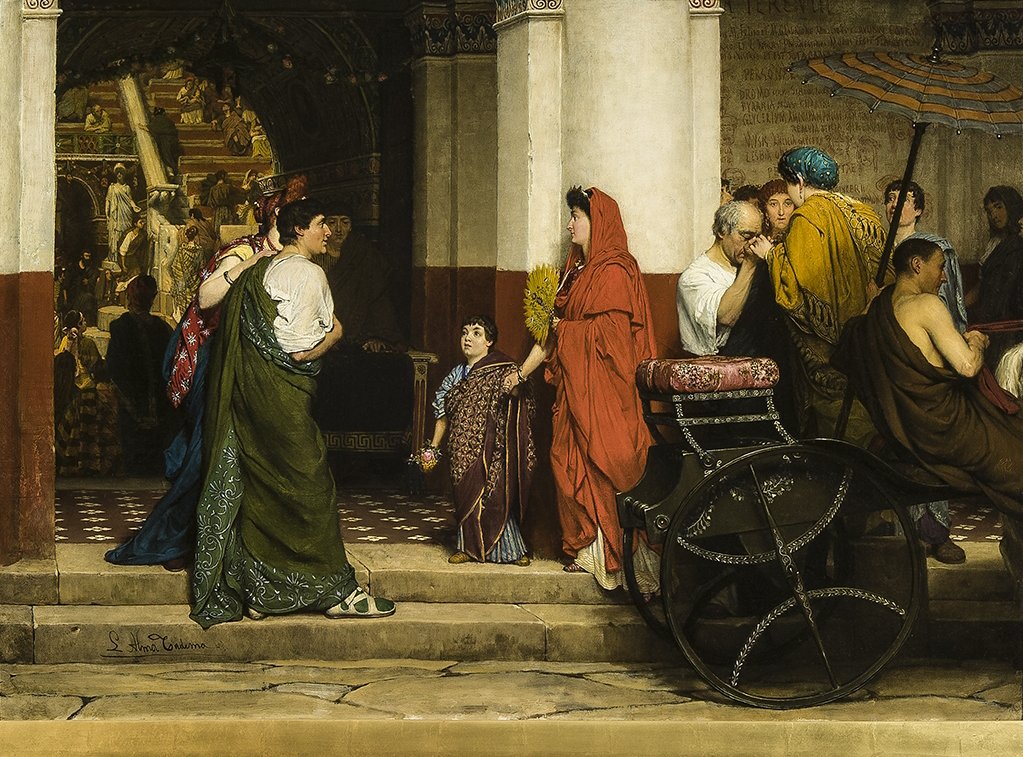
3) Resisting Hostile Narratives
Similarly, he could see through the fake stories other people tell to gain an edge.
Example: Tense negotiations with his defeated enemy, King Mithridates of Pontus
(Note in this situation he's outnumbered 26,000 to 2,000):
Similarly, he could see through the fake stories other people tell to gain an edge.
Example: Tense negotiations with his defeated enemy, King Mithridates of Pontus
(Note in this situation he's outnumbered 26,000 to 2,000):
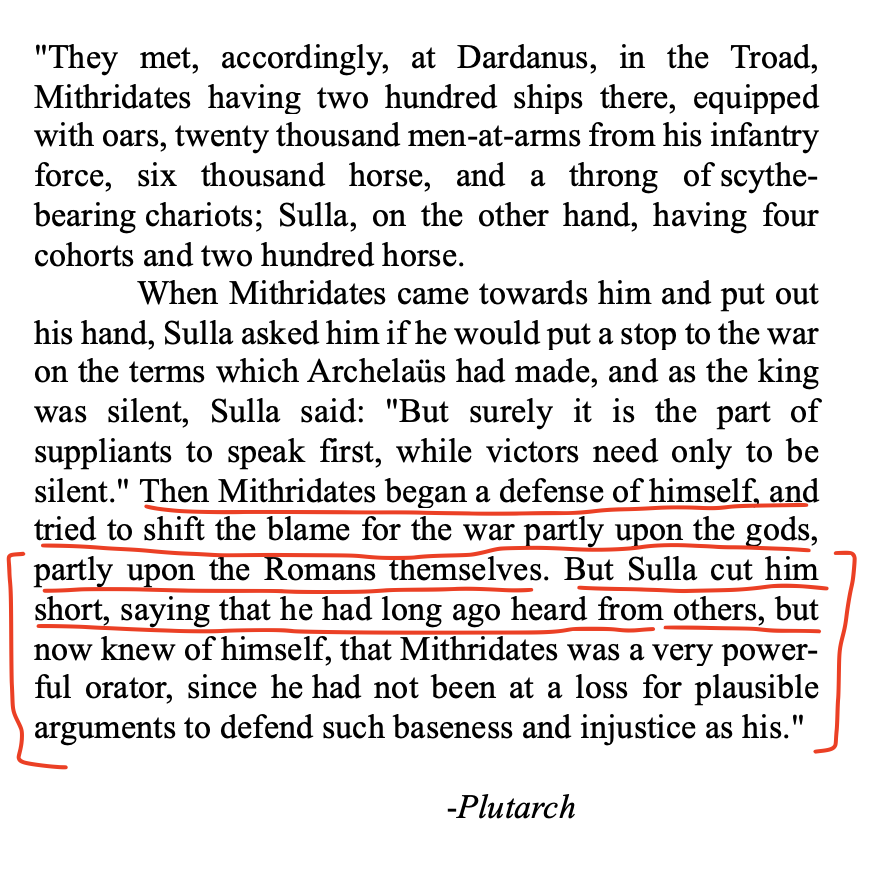
4). Physical Courage
Sulla once used himself as human bait in order to capture Jugurtha.
He often fought at the front lines.
In a scene reminiscent of George Washington at Monmouth, Sulla turned back a rout of his troops at Orchomenus, during the Mithridatic war:
Sulla once used himself as human bait in order to capture Jugurtha.
He often fought at the front lines.
In a scene reminiscent of George Washington at Monmouth, Sulla turned back a rout of his troops at Orchomenus, during the Mithridatic war:
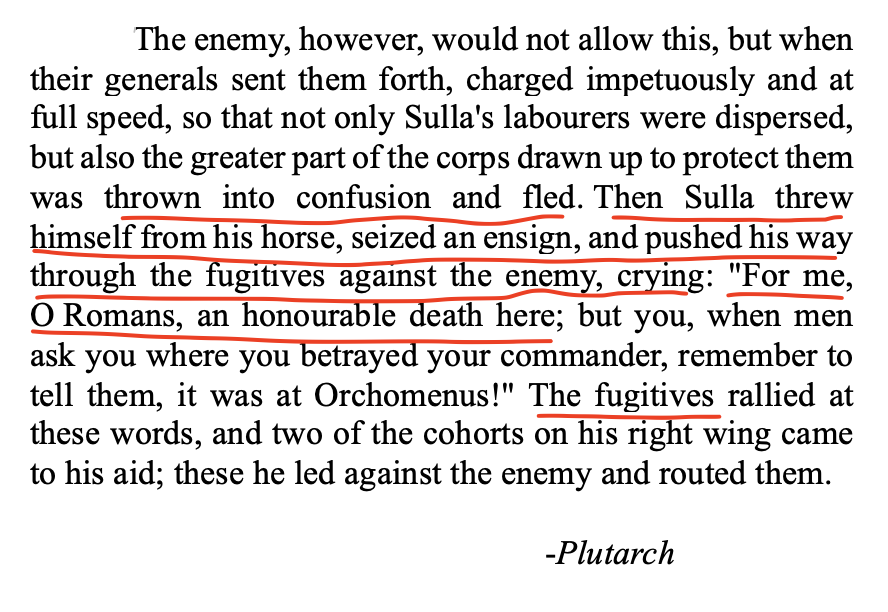
5) Strong Faith in Divine Favor
Apollo and Venus often visited him in dreams. He listened.
Translation: High trust in his intuitions, great boldness.
Compare how Sulla grabbed $$ from sacred temples, without hesitation (very taboo):
This example shows his humor:
Apollo and Venus often visited him in dreams. He listened.
Translation: High trust in his intuitions, great boldness.
Compare how Sulla grabbed $$ from sacred temples, without hesitation (very taboo):
This example shows his humor:
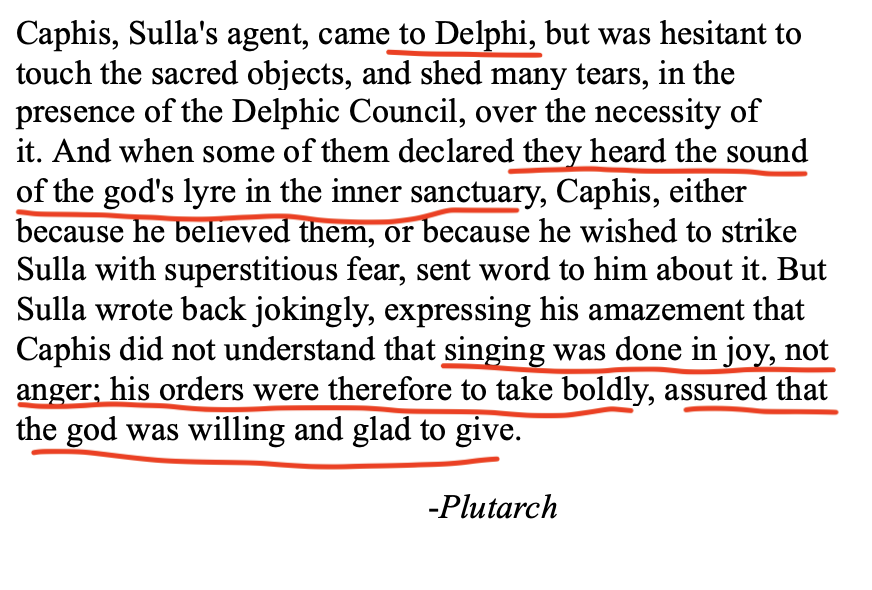
6) Knew how to relax.
He was "Desirous of pleasure but of glory still more; he was a man of luxurious relaxation; yet pleasure never kept him from his activities." (Sallust)
Relaxed mind --> better focus and intuition.
Lucullus (depicted) learned well from his mentor Sulla:
He was "Desirous of pleasure but of glory still more; he was a man of luxurious relaxation; yet pleasure never kept him from his activities." (Sallust)
Relaxed mind --> better focus and intuition.
Lucullus (depicted) learned well from his mentor Sulla:
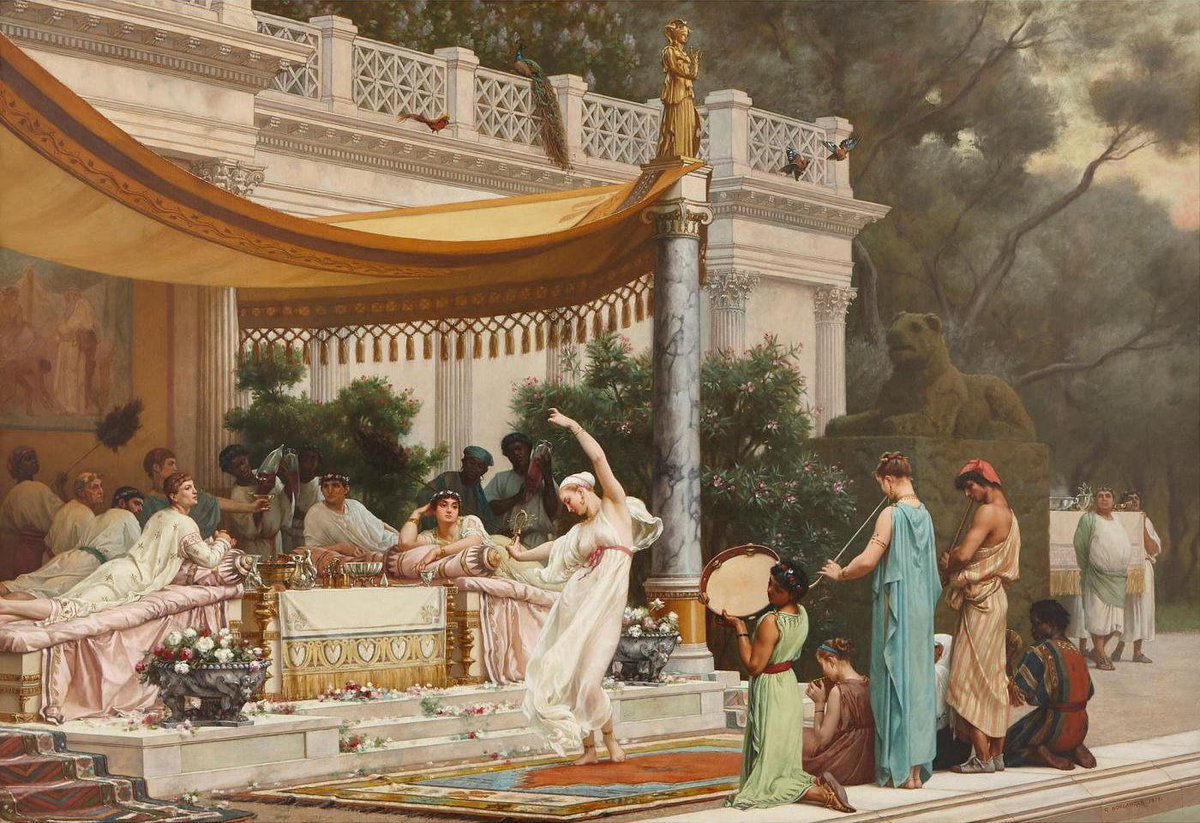
7) Cultivated Mentors
Sulla was incredibly talented, but voluntarily put himself under the wing of the great Gaius Marius and others.
Mentors = skills, knowledge, connections you don't have yet.
(He later became Marius' nemesis. Many lessons to be taken from this, too.)
Sulla was incredibly talented, but voluntarily put himself under the wing of the great Gaius Marius and others.
Mentors = skills, knowledge, connections you don't have yet.
(He later became Marius' nemesis. Many lessons to be taken from this, too.)
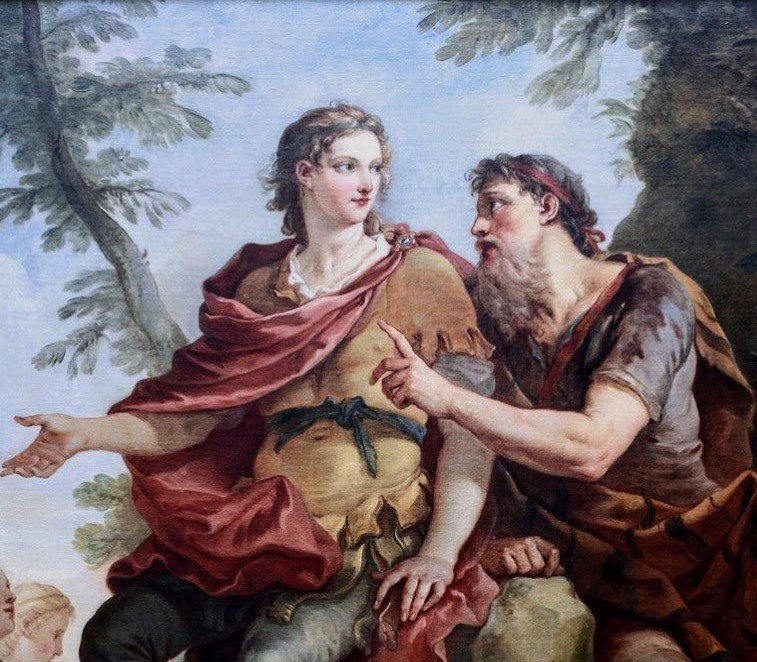
8) Developed the ability to learn new subjects quickly
Sulla began his military career VERY late, age 30.
But once he got to Numidia:
"Although previously inexperienced and ignorant of warfare, he became in a short time the shrewdest of all"
-Sallust
Napoleon was similar.
Sulla began his military career VERY late, age 30.
But once he got to Numidia:
"Although previously inexperienced and ignorant of warfare, he became in a short time the shrewdest of all"
-Sallust
Napoleon was similar.

9) Gave without asking in return.
This is not being nice.
This is not being careless with your gifts and expenditures.
This is the long game.
Sulla didn't want a one time trade, he wanted to build loyalty and relationships.
The young Sulla on his first campaign in Numidia:
This is not being nice.
This is not being careless with your gifts and expenditures.
This is the long game.
Sulla didn't want a one time trade, he wanted to build loyalty and relationships.
The young Sulla on his first campaign in Numidia:
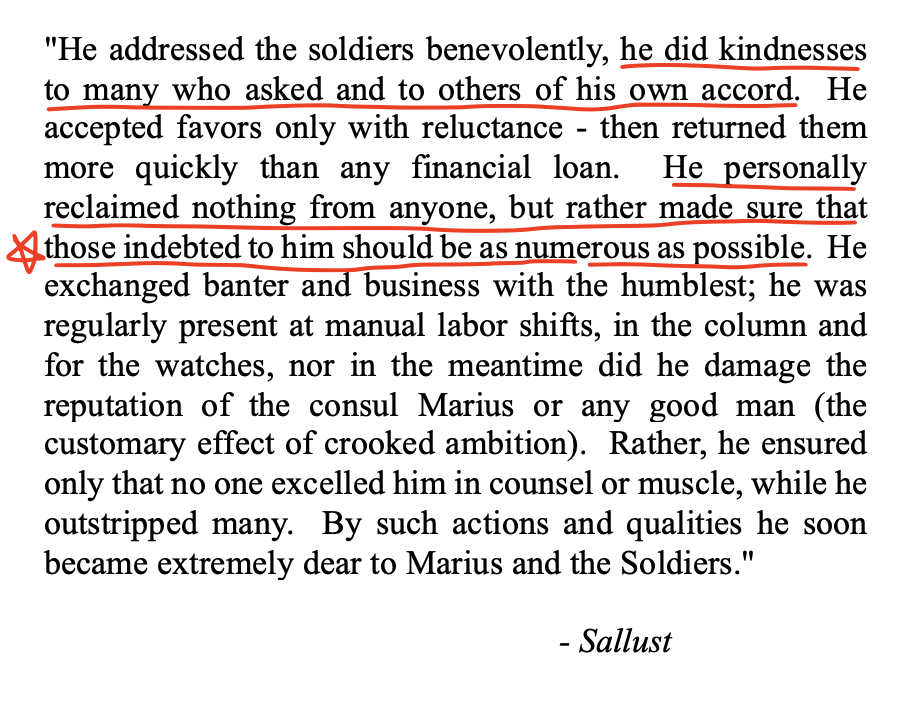
Summary: Keys to Sulla's deadly effectiveness:
1) Storytelling
2) Charm
3) Resist Stories
4) Courage
5) Faith
6) Relaxation
7) Mentors
8) Quick Study
9) Giver
His tombstone:
“Here lies Sulla, whom no friend ever surpassed in doing kindnesses, nor any enemy in doing mischief.”
1) Storytelling
2) Charm
3) Resist Stories
4) Courage
5) Faith
6) Relaxation
7) Mentors
8) Quick Study
9) Giver
His tombstone:
“Here lies Sulla, whom no friend ever surpassed in doing kindnesses, nor any enemy in doing mischief.”
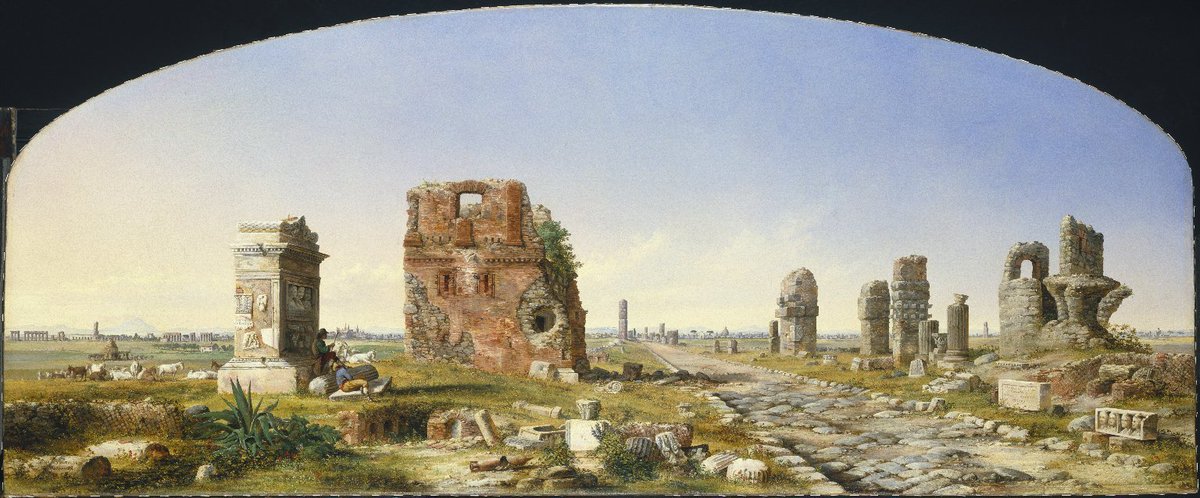
If you learned something, share!
RT the first tweet in the thread.
Follow me for more insights and stories from history's greatest.
I told Sulla's full biography in the Cost of Glory podcast
Episodes 44-46.
open.spotify.com/episode/6tsICj…
RT the first tweet in the thread.
Follow me for more insights and stories from history's greatest.
I told Sulla's full biography in the Cost of Glory podcast
Episodes 44-46.
open.spotify.com/episode/6tsICj…
• • •
Missing some Tweet in this thread? You can try to
force a refresh


